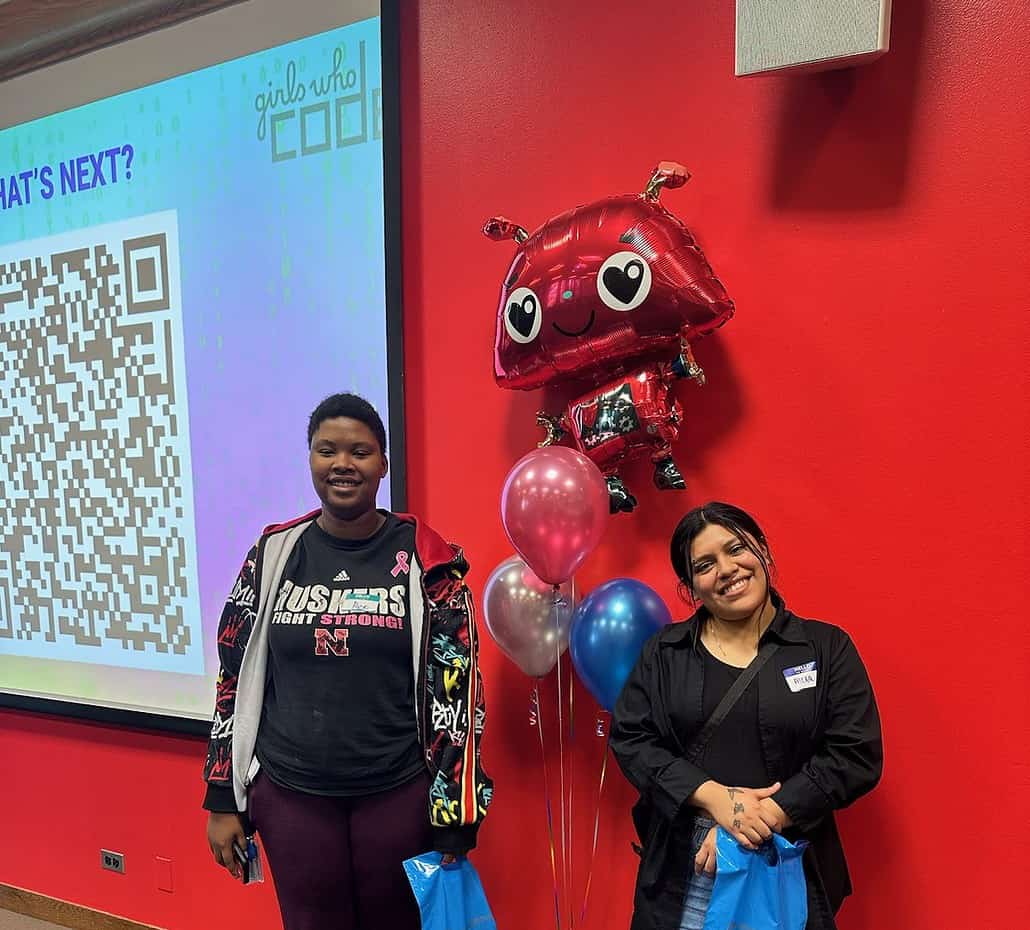Youth Help Build Homes for Chicago Residents in Need
At Mercy Home, we stress the importance of giving back to the community. Some of our young men spent a...
June 26, 2025
October 17, 2023
Alexa and Alise have been attending programs run by Girls Who Code, an international nonprofit that works to close the gender gap in computer science fields. It was created to show young women that computer coding is a problem-solving tool that can be used to invent, lead, and explore.
“Girls who Code is mostly teaching based on engineering,’ Alexa said. “If you’d like to go into the career of engineering, they’re basically helping you. If you’ve done it before, they’ll put you in a level that isn’t too hard for you. It’s just a process to learn if you really like it or not.”
When Mercy Home coworker Idalis Uriostegui brought the idea to Alexa and Alise, they were both eager to join. Alise is the more experienced coder of the two and Uriostegui thought it would be a good opportunity to network with other youth in the program as well as the experienced mentors that teach the class.
“I would say my favorite part is learning,” said Alise, who is thinking about applying to the University of Illinois at Chicago for college. “We’re learning Java Script and Python. I’ve been playing around with Khan Academy and different websites, so I know how to use it a little bit, but at the same time, I probably need to jog my memory.”

Before joining Girls Who Code, Alise learned HTML and is also enrolled in a class at her school where she works with the programming language C++. In college, Alise wants to study video game development or character designing.
Alexa, who’s been at Mercy Home for about four years, joined Girls Who Code with little experience. Uriostegui thought that it would be a great way for her to interact with other people outside of Mercy Home. Alexa always wanted to learn about coding when she was younger, but never thought she’d get the opportunity.
“I always had to let it go, because I thought I’d never get the chance,” Alexa said. “But now look at this… I find it interesting. Most of the things that I know are because I got curious and I learned about it.”
Alexa really appreciates her mentors in the program because they remind her of the coworkers at Mercy Home. Her message to other people is that it’s never too difficult to learn something that is unfamiliar at first.
“People go into that mindset that I don’t want to do it because it’s too hard, but you will never know if it’s too hard unless you try it,” Alexa said.
While both Alexa and Alise said that they enjoy having each other’s company in the virtual program, they both relish the opportunity to meet new kids just like them from both near and far.
“I realized last Saturday that it’s not just people from America,” Alexa said. “There’s people from the other side of the world.”
Not only are the two enjoying the two-hour sessions every week, but they are making a difference by breaking into a field that that has historically employed more men.
No matter what Alexa and Alise chose to do in the future, we know they’ll succeed—especially with encouragement from caring adults and organizations who believe in them and support their education.
At Mercy Home, we stress the importance of giving back to the community. Some of our young men spent a...
June 26, 2025
In the city of “Big Shoulders,” there are many young people who don’t have a positive role model or a...
June 26, 2025
When eight of Mercy Home’s young people, accompanied by four coworkers, embarked on a 10-day journey to County Cork, Ireland,...
June 26, 2025
Comments